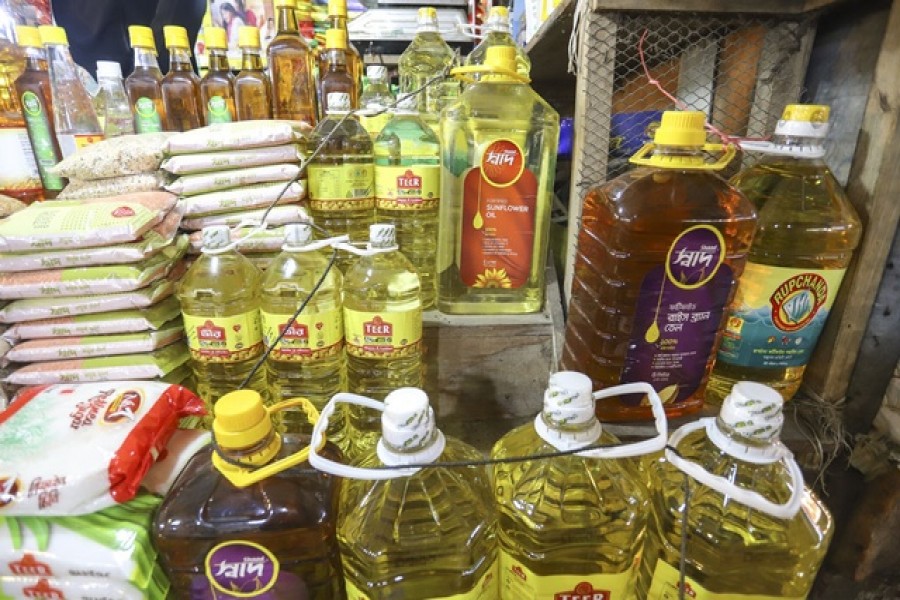Men in authority need to watch their words, that too during crisis moments.
Even though the consumers are now hit below the belt by an unrelenting rise in prices of most daily essentials, they are unlikely to contest the reasons that commerce minister Tipu Munshi cited for the hike in prices of some food items.
The minister had explained the reasons at the second meeting of the task force on commodity prices held at his secretariat office on Wednesday.
But eyebrows were raised over one particular comment coming from the minister.
While discussing the issues concerning the supply and prices of edible oils, Mr Munshi emphasized the higher production of rice bran oil. He said the country could meet more than a quarter of the demand for edible oils by enhancing the domestic production of rice bran oil. None would dispute the minister's contention since Bangladesh is one of the major rice-growing countries in the world.
But the next part of his statement that says 'soybean oil is harmful to human health' will surely evoke surprise. Some people might interpret the statement in the wrong way. The prevailing situation of the supply and prices of soybean oil is favourable for making the assessment wrongly.
Why has the government allowed the import, refining and marketing of degummed or refined soybean oil for decades when it, according to the commerce minister, is harmful to human health?
This is the obvious question that might come up.
The truth is soybean oil consumption has been growing at a faster rate in recent years than palm oil in the country. The consumption of this edible oil reached 1.31 million tonnes in the fiscal year 2020-21, registering a compound annual growth rate of 5.0 per cent from the fiscal year 2017-18. The growth rate with palm oil was far less, only 0.5 per cent, during the period. But the consumption of palm oil was higher than soybean oil at more than 1.6 million tonnes during the last FY. When consumers' preference for this 'harmful' consumable was growing at a faster pace, the government should have warned the former about the consequences.
Neither soybean nor palm oil is among the five safest edible oils. Olive oil, rapeseed oil, sunflower oil, coconut oil and groundnut oil are considered healthier. However, these oils are either expensive or produced in limited quantities. The vast majority of Bangladeshi consumers have chosen the low-cost oils having both positive and negative health results.
At Wednesday's Taskforce meeting, the commerce minister also assured the consumers of the sufficient availability of edible oils, wheat and onion.
The availability of any food item has not been a problem in Bangladesh, barring edible oils, in the recent past. What has troubled the consumers most is their price. Because of the machinations by a section of traders, soybean and palm oils disappeared from grocers in the past few weeks. With their plot on the price-hike becoming a success, the food item is back on the shelves of groceries.
Consumers would not mind a hike in the prices of food items commensurate with their international rates, provided those are imported at the latest price. They feel truly aggrieved when they see traders hiking the prices of food items in old stock instantly. But the traders would not follow the same rule when the opposite happens in the international market.
Consumers want the government to do exactly what is needed to help the market behave rationally and traders play by the rules. Nothing more, nothing less!


